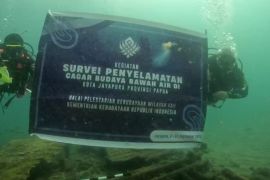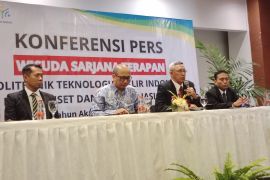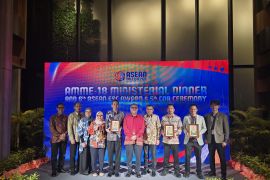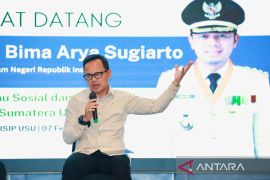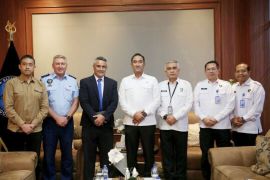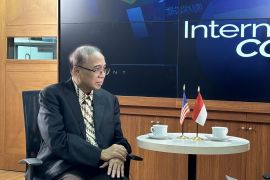"MOFA will fully support the establishment of the Bung Hatta School of Diplomacy as we only have tiered training for diplomats in the form of an education and training center," the Director General of Public Diplomacy of MOFA, Esti Andayani, said here on Tuesday.
Mohammad Hatta, popularly known as "Bung Hatta," was Indonesias first vice president. He was considered one of the "proclamators" of Indonesian independence, along with the countrys first president, Soekarno.
According to Andayani, the establishment of the Bung Hatta School of Diplomacy would equip the diplomat candidates with basic knowledge of diplomacy before they join the ministry.
"At this school, diplomat candidates can develop structured, basic knowledge of diplomacy," she stated.
The establishment of the diplomacy school was the brainchild of one of Mohammad Hattas daughters, Meutia Hatta. She proposed the idea while accepting the National Hero Ide Anak Agung Gde Agung Award for Excellence in Diplomacy on behalf of her father at the MOFAs Pancasila Building in Jakarta on Monday.
"The idea to build a school of diplomacy was initiated by a few figures and experts in the field some five years ago. They were inspired by Bung Hatta, who had tried hard to establish a credible and reliable school of diplomacy," she noted.
Meutia further revealed that till his last days, Bung Hatta believed that diplomacy should be the prerogative of Indonesian diplomats and high officials of the MOFA.
"The knowledge of diplomacy must be developed to meet the challenges of progress and time," she added.
Meutia recalled when her father had told his daughters that he wanted Indonesian diplomats to be capable and confident and accomplish their diplomatic duties to promote nationalism.
"Bung Hatta hoped that Indonesian diplomats would be able to negotiate without any inferiority complex, and would carry out their duties sincerely for the sake of the people and the government of Indonesia," she remarked.
Despite Mohammad Hattas noble wishes, Meutia admitted that the establishment of the school of diplomacy was not an easy task.
"Our efforts were hampered by problems with funding and finding the right location. This is why we hope all stakeholders of Indonesian diplomacy coordinate with each other to make this school a reality," she stated.
***3***
(T.A060/INE/S012)
EDITED BY INE
Reporter: Azi Fitriyanti
Editor: Fardah Assegaf
Copyright © ANTARA 2014
